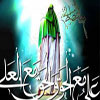
Assalam-alaikum, In the book, "The great Muslim scientist and philosopher", there is a discussion between Imam Jaffer As-Sadiq A.S. and an atheist 'Abu shakir'. During the discussion some deep scientific knowledge is revealed. Now some people have said that the entire book is fake. Can you please inform if one can locate the discussion between the Imam A.S. and the atheist named Abu Shakir, specifically, in any of the hadith books?
Concise answer
During the lifetime of Imam Ja'far Sadiq (AS), theological debates and discussions invovling the Imam himself were carried out quite often. One of the most serious topics around which discussions and debates took place was the existence of God. Due, mainly, to the free atmosphere prevailing in Arabia, the discussions would often take place among members of the opposite groups. There is no doubt that these discussions ultimately ended up in the victory of the theists ands monotheists and the defeat of the disbelievers. One of those who had lengthy debates with Imam Ja'far Sadiq, peace be upon him, was Abu Shakir Daysani.[i] What follows is a report on two dialogues between him and Imam Ja'far Sadiq (AS) regarding the existence of God, the Exalted:
1. Hesham bin Hakam narrates:
Abu Shakir told me that he had a question and he asked me to arrange a meeting with my teacher, Imam Ja'far Sadiq (AS) because he had a question which he had asked many scholars but he had not got a convincing answer.
Hesham asked Abu Shakir if he did not want him to know about his question. He said that might perhaps have an answer to his question which he might probably like but Abu Shakir insisted that he wanted to meet Imam Sadiq (AS) and ask him his question as well.
Hesham says that he arranged a meeting for him and he asked his question:
Abu Shakir said to the Imam (AS): "Would you allow me to say something and ask some questions?"
Imam Sadiq (AS) said: "What is your question?"
Abu Shakir al-Daysani asked Imam al-Sadiq (AS): "How can you prove that you have a Creator?"
Consequently, he (AS) responded: "I found myself not free from one of the two possibilities: either I have created myself, or someone else has created me. If I have created myself, then I am not free from one of two meanings: either I created myself while I was already existent, or I created myself while I was nonexistent. Hence, if I created myself, and I already existed, then I was self-sufficient of giving existence to myself. And if I was nonexistent, then you know that the nonexistent cannot bring about a thing. Therefore, the third meaning is proven that I have a Creator and that is Allah, the Lord of the Universe."[ii]
2. One day Abu Shakir came to the Imam and said, "Prove to me the existence of God." Imam (a.s) told him to be seated. At that time a boy passed by holding a hen's egg. Imam (a.s) called him, and taking the egg from him kept it on his palm. Then he told Abu Shakir, "See, it is such a strong fort that has no doors. On its outside is a hard skin and below it is a thin membrane, inside which flow two seas of gold and silver. But neither can the yellow mix with the white nor the white can merge with the yellow. Neither can a repairer enter it nor a destroyer comes out of it. No one can even know whether the newborn would be a male or a female. Then all of a sudden it cracks and a beautiful chick emerges from it. Can your reason agree that all this happened without a designer or a maker?" Hearing this Abu Shakir bowed down his head and said, "I repent for my beliefs today and accept the religion of Islam."[iii]
Although these two reports do not have so strong chain of narration, their contents are coherent and consistent with the fundamentals of Islamic beliefs and theology. Thus, they can be used to argue with. Indeed, the argument in the second narration somehow signifies the kind of knowledge which Daysani had no knowledge before it.
[i] Vide: Kulayni, Muhammad bin Ya'qub, Al-Kafi, researched and corrected by Ghaffari, Ali Akbar, Akhundi, Muhammad, vol.1, p. 128, Dar al-Kotob al-Islamiyah, fourth edition, 1407 A.H; Ibn Shahr Ashub Mazandarani, Muhammad bin Ali, Mutashabeh al-Qur'an wa Mukhtalifehi, vol.1, p. 48, Qom, Beidar, first edition, 1410 A.H.
[ii] Sheiky Saduq, Al-Tawhid, researched and corrected by Husseini, Hashem, p. 290, Qom, Islamic Publications Office, first edition, 1398 A.H.
[iii] Al-Kafi, vol.1, p, 80; Tabarsi, Ahmad bin Ali, Al-Ehtijaj 'Alaa al-Lejaj, researched and corrected by Khursan, Muhammad Baqir, vol.2, p. 333, Mashad, Murteza Publication, first edition, 1403 A.H.
source : www.islamquest.net













